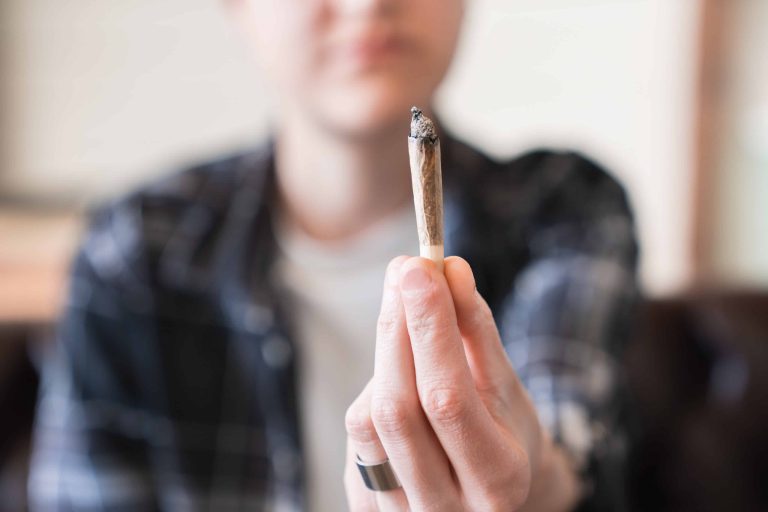A study published in the Journal of Health Economics addresses the topic of tobacco use in the wake of cannabis legalization. Entitled “Have recreational marijuana laws undermined public health progress on adult tobacco use?” researchers found that cannabis reform in individual states has led to decreased tobacco use. The study was conducted by Bentley University, San Diego State University, and Georgia State University. “This study is the first to comprehensively examine the impact of the legalization of recreational marijuana on adult tobacco use,” authors explained.
Researchers reveal three key findings in their study. First, that “first-stage” results from the National Survey on Drug Use and Health (NSDUH) and Population Assessment of Tobacco and Health (PATH) “show consistent evidence that RML [recreational marijuana laws] adoption increases adult marijuana use by 2- to 5-percentage-points, including through vaping.”
Second, authors state that they “find no evidence that legalization of recreational marijuana increases adult tobacco use.” And lastly, that “RML adoption accompanied by the opening of recreational marijuana dispensaries is associated with larger increases in ENDS [electronic nicotine delivery system] use than RML adoption without open dispensaries.”
Ultimately, authors wrote that the increased number of recreational dispensaries “is an important supply channel to explain substitution between marijuana and tobacco among adults.”
However, they conclude that the rise of cannabis has led to cautionary warnings from public health experts who call for more research. One of their primary concerns is that the rise of cannabis smoking could lead to an unintended “renormalization of smoking” that could potentially set back existing tobacco control policies.
The Surgeon General report of 1964 is famous for connecting tobacco use to lung cancer, stating that smoking cigarettes was “responsible for a 70% increase in mortality rate of smokers over non-smokers,” according to the National Library of Medicine. According to Surgeon General Luther L. Terry, the report “hit the country like a bombshell. It was front page news and a lead story on every radio and television station in the United States and many abroad.”
Nearly 60 years later, tobacco use has widely decreased. The authors found that tobacco use fell earlier in states with recreational cannabis legalization than those without. “The results provide some support for the hypothesis that tobacco use declined in several of the earliest adopting states, most notably in Colorado and Washington, which are also those states that saw the largest increases in marijuana use following RML enactment,” authors concluded.
Authors also pointed out that the tobacco use reduction is “consistent with the hypothesis that recreational marijuana and tobacco may be substitutes for some adults.”
In February, California legislators introduced a bill that would ban tobacco sales to anyone born after 2006 to phase out tobacco use and addiction. However, big tobacco industry leaders are continuing to find new ways to move into the cannabis industry. One of the biggest tobacco companies in the world, British American Tobacco (BAT), announced last September that it would be purchasing a Germany-based cannabis company called Sanity Group GmbH. “We continue to transform our business, through better understanding of our current and future consumers, as part of our A Better Tomorrow purpose,” said BAT Chief Growth Officer Kingsley Wheaton last year.
Data from other studies still shows evidence that tobacco use continues to plummet. A May 2022 study found that cannabis legalization has contributed to a decrease in alcohol and cigarette consumption. Another study from July 2022 shows that cannabis use is supported by Australians much more than tobacco use, and a Gallup poll released one month later in August 2022 also showed how Americans smoke more cannabis than cigarettes.
